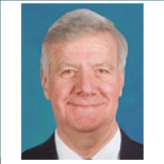The Asia Foundation (TAF) was established as a Central Intelligence Administration (CIA) proprietary in 1954 with the mission “to undertake cultural and educational activities on behalf of the United States Government in ways not open to official U.S. agencies.”
Development and Democracy in Post-9/11 Asia
(by William Fuller, Philanthropy News Digest)
Economic Reform and Development
(PDF)
56.1% spent on Republican Party
Covert Operations and the CIA's Hidden History in the Philippines (by Roland G. Simbulan, University of the Philippines)
- Table of Contents
- Overview
- History
- What it Does
- Where Does the Money Go
- Controversies
- Suggested Reforms
- Comments
- Leave a comment


David Michael Lampton—an expert in U.S.-China relations, as well as Chinese domestic politics, leadership and foreign policy—was named chairman of the board of The Asia Foundation in 2014. The foundation, established in 1954, undertakes cultural and educational activities on behalf of the U.S. government in ways not open to official U.S. agencies.
Lampton was born on May 17, 1946, in Glendale, California. In 1964, he attended Willamette University, in Salem, Oregon. In 1965, he enrolled at Stanford University, where, as an undergraduate, he worked as a fireman in the Stanford Fire Department, and proceeded to earn his B.A. degree in 1968. From 1968 to 1969 he served on active duty in the United States Army, remaining in the Army Reserves from 1970 to 1983.
Lampton spent the summers of 1970 and 1971 working as a research assistant for Stanford’s internationally known professor of international relations, Alexander George, and in 1971 he earned his M.A. degree from the university. In 1973, Lampton became a post-doctoral fellow at the University of Michigan’s Center for Chinese Studies. Upon earning his Ph.D. at Stanford in 1974, he launched his academic career by becoming an assistant professor of political science at Ohio State University (OSU). After five years in that position, he advanced to an associate professorship at Ohio State, which he held through 1987. Also from 1980 to 1987, he worked as a senior research associate at OSU’s Mershon Center.
Between 1983 and 1985, Lampton took leave from OSU to serve as principal staff officer and director of special projects at the National Academy of Sciences’ Committee on Scholarly Communication with the People's Republic of China. From 1985 to 1987, he was founding director of the China Policy Studies Program at the American Enterprise Institute.
Between January 1988 and November 1997, Lampton served as president of the National Committee on U.S.-China Relations, and from May 1998 to May 2006, he was founding director of the Chinese Studies Program at the Nixon Center (now the Center for the National Interest). Then, between May 2006 and May 2010, Lampton worked as senior international advisor on China for the law firm of Akin Gump Strauss Hauer & Feld.
He is currently head of SAIS China, a program run by the Johns Hopkins School of Advanced International Studies that offers educational courses around the world about contemporary China. Lampton, who had been dean of faculty at SAIS from July 2004 to June 2012, continues to serve as Hyman professor and director of China studies at John Hopkins’ Washington, D.C. campus, a position he has had since December 1997.
Since 1981, Lampton has held seats on at least 15 boards, including the Asia Foundation’s board of trustees, which he joined in 2006. Since 1978, he has provided consulting services to more than a dozen agencies and organizations, including the CIA; the Department of Health, Education and Welfare (now the Department of Health and Human Services); and the National Academy of Sciences.
In January 2015, the Institute of International Relations at the China Foreign Affairs University in Beijing named Lampton “the most influential China watcher” based on its researchers’ assessment of 158 China experts and ranking of the 20 most important China observers in the U.S.
Lampton is the author of numerous articles and books, including Following the Leader: Ruling China, from Deng Xiaoping to Xi Jinping (2014), The Three Faces of Chinese Power: Might, Money, and Minds (2008); Same Bed, Different Dreams: Managing U.S.- China Relations, 1989-2000 (2002); and Paths to Power: Elite Mobility in Contemporary China (2000), as well as editor of The Making of Chinese Foreign and Security Policy (2001).
In December 2016, after then-president-elect Donald Trump nominated Iowa Gov. Terry Branstad as the U.S. ambassador to China, Lampton commented, according to PBS Newshour: “[Branstad] is a person known to [China], and the Chinese value long-standing relationships. So I think he’s a credible vehicle for messages the Trump administration would want to send to the Chinese leadership.” Commenting on Secretary of State Rex Tillerson’s first official visit to China in March 2017, Lampton told Howard LaFranchi of The Christian Science Monitor that “In China, politics are not institutionalized, it's personalized, and as part of that the Chinese are used to evaluating the relations of a supreme leader and his subordinates, determining who has influence and who doesn't, and acting accordingly. The problem for Tillerson is that, far from empowering him, the president has really undermined his clout.”
Lampton and his wife, Susan Sedlacek Lampton, have two children, Kate and Adam.
-Danny Biederman
To Learn More:
China and the United States: A Conversation with David M. Lampton (Asia Foundation)
Following the Leader: Ruling China, from Deng Xiaoping to Xi Jinping (video—author discussion with David M. Lampton; National Committee on U.S.-China
Relations)
China: Challenger or Challenged? (by David M. Lampton, Washington Quarterly) (pdf)
A New Type of Major Power Relationship: Seeking a Durable Foundation for U.S.-China Ties (by David M. Lampton, Asia Policy—pages 1-18) (abstract)

Douglas Beureuter, the president of The Asia Foundation, earned a B.A. from the University of Nebraska and Master’s degrees in both city planning and public administration from Harvard University. He served as an infantry and intelligence officer in the U.S. Army, taught graduate courses in urban and regional planning, led various agencies and programs in Nebraska State Government, and served one four-year term as a Nebraska State Senator. A Republican, Beureuter was elected to the U.S. House of Representatives in 1978. He served nearly ten years on the House Permanent Select Committee on Intelligence, retiring as its vice chairman. He was also the founding co-chairman of the Congressional-Executive Commission on China, chaired the Speaker’s Task Force to Monitor and Report on the Transition of Hong Kong (1996-2002), and the House Delegation to the 40-country NATO Parliamentary Assembly, where he presided as its president for two years until November, 2004. His congressional career also included six years as vice chairman of the House International Relations Committee and six years as chair of the Asia - Pacific Subcommittee. He also chaired the Europe Subcommittee immediately before his departure, was ranking minority member of the Human Rights Subcommittee for six years, and had a long tenure on its Subcommittee on Economic Policy & Trade. Beureuter served on the House Financial Services Committee for twenty-three years, and for sixteen years, chaired or served as ranking minority member of the Subcommittee on International Institutions, which has oversight jurisdiction for American participation in the Asian Development Bank, the World Bank, other regional development banks, the U.S. Export-Import Bank, and the IMF.
- Voted YES on keeping Cuba travel ban until political prisoners released. (Jul 2001)
- Voted YES on Permanent Normal Trade Relations with China. (May 2000)
- Multi-year commitment to Africa for food & medicine. (Apr 2001)
- Voted YES on authorizing military force in Iraq. (Oct 2002)
- Voted YES on disallowing the invasion of Kosovo. (May 1999)
- Rated 20% by NARAL, indicating an anti-abortion voting record. (Dec 2003)
- Voted YES on Constitutional amendment prohibiting flag desecration. (Jun 2003)
- Voted YES on banning gay adoptions in DC. (Jul 1999)
- Voted YES on Amendment to prohibit burning the US flag. (Jun 1999)
- Voted YES on ending preferential treatment by race in college admissions. (May 1998)
- Rated 13% by the ACLU, indicating an anti-civil rights voting record. (Dec 2002)
- Voted YES on passage of the Bush Administration national energy policy. (Jun 2004)
- Voted YES on raising CAFE standards; incentives for alternative fuels. (Aug 2001)
- Voted NO on prohibiting oil drilling & development in ANWR. (Aug 2001)
- Voted YES on starting implementation of Kyoto Protocol. (Jun 2000)
- Supports immediate reductions in greenhouse gases. (Sep 1998)
- Latest News
- D.C. Public Schools will Teach all Second-Graders to Ride a Bike
- New Rule in Germany Limits Sales of Sex-Themed E-Books to 10pm to 6am
- What Happened to the 6-Year-Old Tibetan Boy the Chinese Government Kidnapped 20 Years Ago?
- U.S. Ambassador to Turkey Photoshops his Hair Color to Mock Turkish Mayor
- Mystery Artist Calls Attention to Unfixed Potholes by Drawing Penises around Them
The Asia Foundation (TAF) was established as a Central Intelligence Administration (CIA) proprietary in 1954 with the mission “to undertake cultural and educational activities on behalf of the United States Government in ways not open to official U.S. agencies.”
Development and Democracy in Post-9/11 Asia
(by William Fuller, Philanthropy News Digest)
Economic Reform and Development
(PDF)
56.1% spent on Republican Party
Covert Operations and the CIA's Hidden History in the Philippines (by Roland G. Simbulan, University of the Philippines)
Comments


David Michael Lampton—an expert in U.S.-China relations, as well as Chinese domestic politics, leadership and foreign policy—was named chairman of the board of The Asia Foundation in 2014. The foundation, established in 1954, undertakes cultural and educational activities on behalf of the U.S. government in ways not open to official U.S. agencies.
Lampton was born on May 17, 1946, in Glendale, California. In 1964, he attended Willamette University, in Salem, Oregon. In 1965, he enrolled at Stanford University, where, as an undergraduate, he worked as a fireman in the Stanford Fire Department, and proceeded to earn his B.A. degree in 1968. From 1968 to 1969 he served on active duty in the United States Army, remaining in the Army Reserves from 1970 to 1983.
Lampton spent the summers of 1970 and 1971 working as a research assistant for Stanford’s internationally known professor of international relations, Alexander George, and in 1971 he earned his M.A. degree from the university. In 1973, Lampton became a post-doctoral fellow at the University of Michigan’s Center for Chinese Studies. Upon earning his Ph.D. at Stanford in 1974, he launched his academic career by becoming an assistant professor of political science at Ohio State University (OSU). After five years in that position, he advanced to an associate professorship at Ohio State, which he held through 1987. Also from 1980 to 1987, he worked as a senior research associate at OSU’s Mershon Center.
Between 1983 and 1985, Lampton took leave from OSU to serve as principal staff officer and director of special projects at the National Academy of Sciences’ Committee on Scholarly Communication with the People's Republic of China. From 1985 to 1987, he was founding director of the China Policy Studies Program at the American Enterprise Institute.
Between January 1988 and November 1997, Lampton served as president of the National Committee on U.S.-China Relations, and from May 1998 to May 2006, he was founding director of the Chinese Studies Program at the Nixon Center (now the Center for the National Interest). Then, between May 2006 and May 2010, Lampton worked as senior international advisor on China for the law firm of Akin Gump Strauss Hauer & Feld.
He is currently head of SAIS China, a program run by the Johns Hopkins School of Advanced International Studies that offers educational courses around the world about contemporary China. Lampton, who had been dean of faculty at SAIS from July 2004 to June 2012, continues to serve as Hyman professor and director of China studies at John Hopkins’ Washington, D.C. campus, a position he has had since December 1997.
Since 1981, Lampton has held seats on at least 15 boards, including the Asia Foundation’s board of trustees, which he joined in 2006. Since 1978, he has provided consulting services to more than a dozen agencies and organizations, including the CIA; the Department of Health, Education and Welfare (now the Department of Health and Human Services); and the National Academy of Sciences.
In January 2015, the Institute of International Relations at the China Foreign Affairs University in Beijing named Lampton “the most influential China watcher” based on its researchers’ assessment of 158 China experts and ranking of the 20 most important China observers in the U.S.
Lampton is the author of numerous articles and books, including Following the Leader: Ruling China, from Deng Xiaoping to Xi Jinping (2014), The Three Faces of Chinese Power: Might, Money, and Minds (2008); Same Bed, Different Dreams: Managing U.S.- China Relations, 1989-2000 (2002); and Paths to Power: Elite Mobility in Contemporary China (2000), as well as editor of The Making of Chinese Foreign and Security Policy (2001).
In December 2016, after then-president-elect Donald Trump nominated Iowa Gov. Terry Branstad as the U.S. ambassador to China, Lampton commented, according to PBS Newshour: “[Branstad] is a person known to [China], and the Chinese value long-standing relationships. So I think he’s a credible vehicle for messages the Trump administration would want to send to the Chinese leadership.” Commenting on Secretary of State Rex Tillerson’s first official visit to China in March 2017, Lampton told Howard LaFranchi of The Christian Science Monitor that “In China, politics are not institutionalized, it's personalized, and as part of that the Chinese are used to evaluating the relations of a supreme leader and his subordinates, determining who has influence and who doesn't, and acting accordingly. The problem for Tillerson is that, far from empowering him, the president has really undermined his clout.”
Lampton and his wife, Susan Sedlacek Lampton, have two children, Kate and Adam.
-Danny Biederman
To Learn More:
China and the United States: A Conversation with David M. Lampton (Asia Foundation)
Following the Leader: Ruling China, from Deng Xiaoping to Xi Jinping (video—author discussion with David M. Lampton; National Committee on U.S.-China
Relations)
China: Challenger or Challenged? (by David M. Lampton, Washington Quarterly) (pdf)
A New Type of Major Power Relationship: Seeking a Durable Foundation for U.S.-China Ties (by David M. Lampton, Asia Policy—pages 1-18) (abstract)

Douglas Beureuter, the president of The Asia Foundation, earned a B.A. from the University of Nebraska and Master’s degrees in both city planning and public administration from Harvard University. He served as an infantry and intelligence officer in the U.S. Army, taught graduate courses in urban and regional planning, led various agencies and programs in Nebraska State Government, and served one four-year term as a Nebraska State Senator. A Republican, Beureuter was elected to the U.S. House of Representatives in 1978. He served nearly ten years on the House Permanent Select Committee on Intelligence, retiring as its vice chairman. He was also the founding co-chairman of the Congressional-Executive Commission on China, chaired the Speaker’s Task Force to Monitor and Report on the Transition of Hong Kong (1996-2002), and the House Delegation to the 40-country NATO Parliamentary Assembly, where he presided as its president for two years until November, 2004. His congressional career also included six years as vice chairman of the House International Relations Committee and six years as chair of the Asia - Pacific Subcommittee. He also chaired the Europe Subcommittee immediately before his departure, was ranking minority member of the Human Rights Subcommittee for six years, and had a long tenure on its Subcommittee on Economic Policy & Trade. Beureuter served on the House Financial Services Committee for twenty-three years, and for sixteen years, chaired or served as ranking minority member of the Subcommittee on International Institutions, which has oversight jurisdiction for American participation in the Asian Development Bank, the World Bank, other regional development banks, the U.S. Export-Import Bank, and the IMF.
- Voted YES on keeping Cuba travel ban until political prisoners released. (Jul 2001)
- Voted YES on Permanent Normal Trade Relations with China. (May 2000)
- Multi-year commitment to Africa for food & medicine. (Apr 2001)
- Voted YES on authorizing military force in Iraq. (Oct 2002)
- Voted YES on disallowing the invasion of Kosovo. (May 1999)
- Rated 20% by NARAL, indicating an anti-abortion voting record. (Dec 2003)
- Voted YES on Constitutional amendment prohibiting flag desecration. (Jun 2003)
- Voted YES on banning gay adoptions in DC. (Jul 1999)
- Voted YES on Amendment to prohibit burning the US flag. (Jun 1999)
- Voted YES on ending preferential treatment by race in college admissions. (May 1998)
- Rated 13% by the ACLU, indicating an anti-civil rights voting record. (Dec 2002)
- Voted YES on passage of the Bush Administration national energy policy. (Jun 2004)
- Voted YES on raising CAFE standards; incentives for alternative fuels. (Aug 2001)
- Voted NO on prohibiting oil drilling & development in ANWR. (Aug 2001)
- Voted YES on starting implementation of Kyoto Protocol. (Jun 2000)
- Supports immediate reductions in greenhouse gases. (Sep 1998)
- Latest News
- D.C. Public Schools will Teach all Second-Graders to Ride a Bike
- New Rule in Germany Limits Sales of Sex-Themed E-Books to 10pm to 6am
- What Happened to the 6-Year-Old Tibetan Boy the Chinese Government Kidnapped 20 Years Ago?
- U.S. Ambassador to Turkey Photoshops his Hair Color to Mock Turkish Mayor
- Mystery Artist Calls Attention to Unfixed Potholes by Drawing Penises around Them





Comments